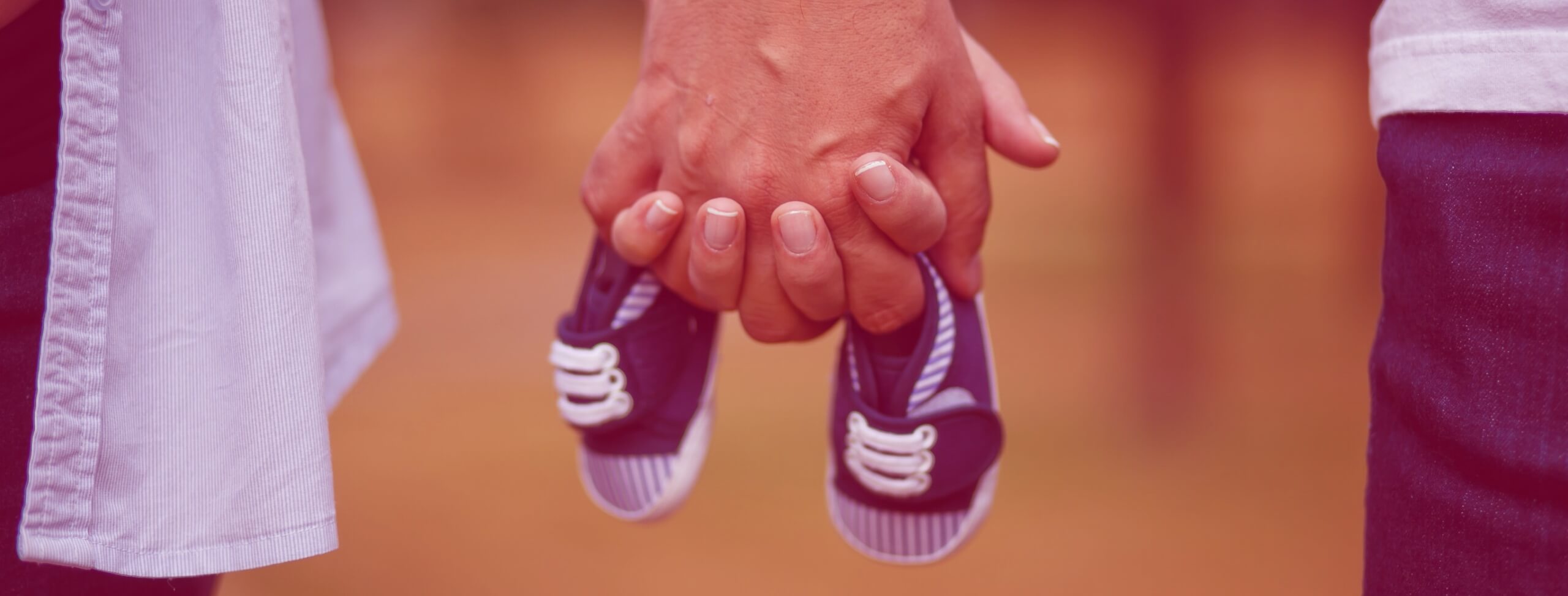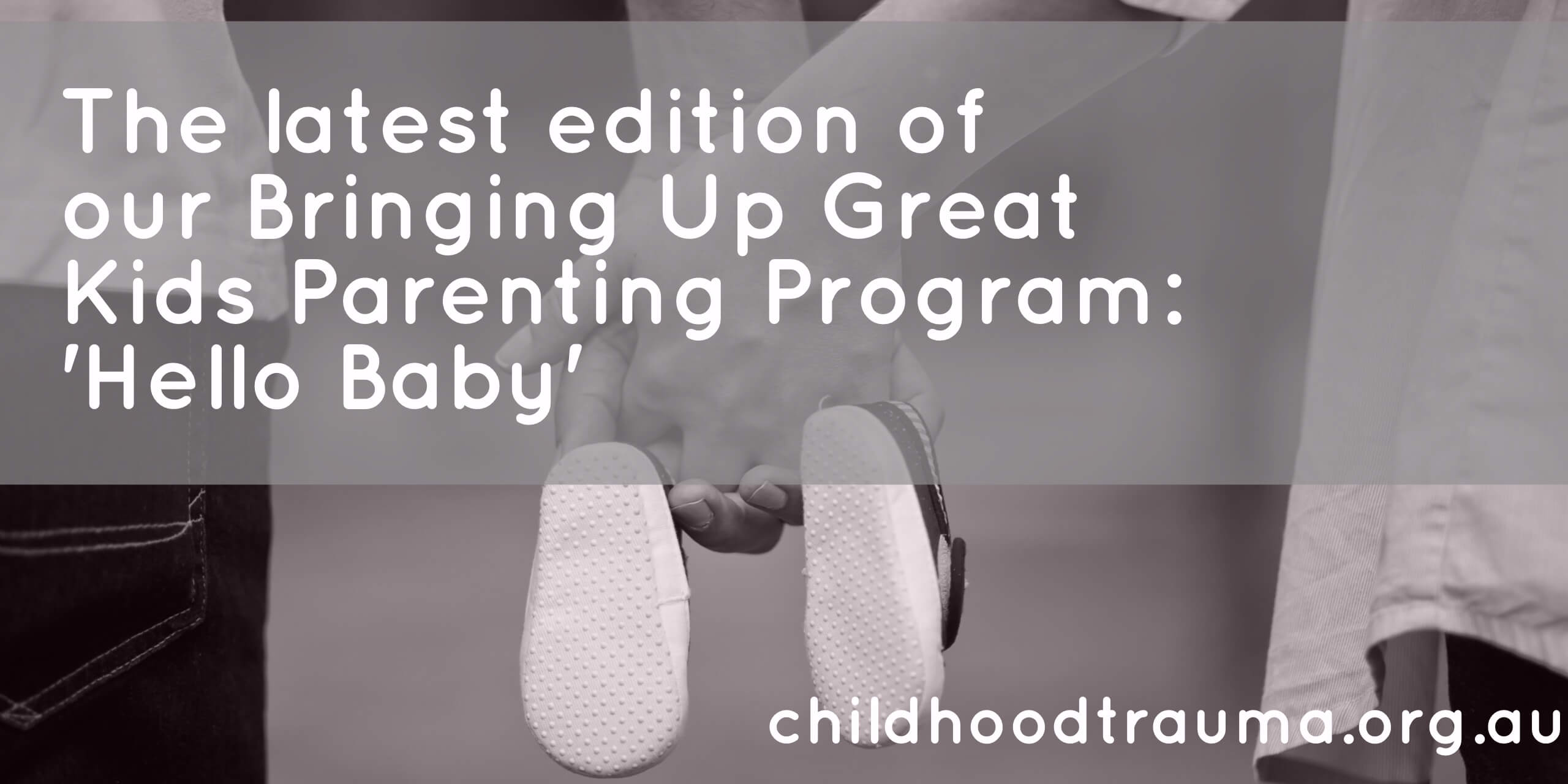
The Sooner the Better
This blog article was authored by Jeanette Miller, Senior Training Consultant
in the Parenting and Early Years Program at the Australian Childhood Foundation.
We all know about the benefits to children, of early intervention and prevention.
In the early years of a child’s life, while his brain is growing faster than it will ever grow again, all that a child experiences, will have the greatest impact on his life-for better or worse. And although it’s true, because of the incredible plasticity of the human brain, that it’s never too late to begin the healing process when there’s been early damage, what also holds true is ‘the sooner the better’ because the youngest brains are the most plastic.
Many people who attend our Bringing Up Great Kids facilitator trainings are astounded to see (thanks to our balloon ‘brains’), that the average baby’s brain almost triples in mass in the first three years of life. But Allan Schore tells us that 1000 grams of that 1100 gram 3 year old brain, is attained in the first 12 months!
So what’s the earliest intervention we can offer to children? …speech pathologists, psychologists, paediatric OT’s and physios, dieticians, provide wonderful early intervention services in pre-school and community health settings across the country. Earlier still in a child’s life, social workers and family support workers might support children in home–visiting or playgroup settings. Referrals to those professionals might come from Maternal and Child Health /Child & Family Health nurses, or from GPs or paediatricians connected to hospitals, once a baby is born.
But is there some way we could intervene to enhance healthy outcomes for a child even before she’s born? What’s the very earliest intervention we can offer a child? If you can have the greatest influence while the brain is growing at its fastest, what difference might it make for a child if healthy interventions were put in place during pregnancy, when, just 4 weeks after conception, brain neurons are growing at a rate of 250,000 per minute! (Find out more on that here)
And this is not just about brains. Pregnancy is a critical time for epigenetic changes to occur in the developing foetus and maternal stress is one of the environmental triggers to those changes. If we can help to alleviate pregnancy-related stress for mothers, then babies will benefit.
There is also research showing that parents who feel strongly attached to their babies in utero, will be more securely attached to their babies in the early months after birth.
That was some of the thinking behind the development of one of our latest additions to the Bringing Up Great Kids parenting program- meet ‘Hello Baby’ an antenatal intervention for first-time parents and their unborn babies.
 In line with the core Bringing Up Great Kids program, Hello Baby is reflective in nature, providing space for pregnant parents to wonder about their growing baby’s experience and feelings, and to begin to bond with their developing child.
In line with the core Bringing Up Great Kids program, Hello Baby is reflective in nature, providing space for pregnant parents to wonder about their growing baby’s experience and feelings, and to begin to bond with their developing child.
At this early stage of piloting the program we’re already seeing benefits to parents and babies:
- When the sessions are co-facilitated by a MCHN, parents are able to form a relationship with her before the birth of their baby, so that the person who visits them at home in that highly vulnerable time just after the birth, is not a stranger
- Socially isolated parents are forming connections with other parents before the birth of their children
But my favourite story so far comes from an expectant dad who, after listening to a tape of a newborn crying for several minutes, said, “Before this, I would have been thinking, ‘Oh will you just shut up.’, but now I think, ‘Oh poor baby. How can I help you?’
At the time of writing, Hello Baby is still in the gestational stages of development as we continue to pilot the program in a range of community settings in Victoria. Stay tuned for further updates!
